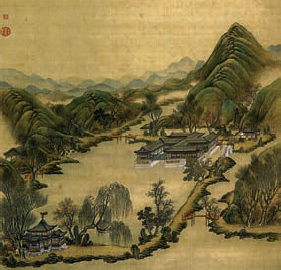 Shall we see France, or some other democratic country, shipping a statue of Liberty across the sea to China? Would China refuse it, as the Americans did, in their day? Is freedom too precious or too insignificant for the Chinese people? We all know what happened to the Goddess of Democracy in Tiananmen Square. What would be Miss Liberty’s fate?
Shall we see France, or some other democratic country, shipping a statue of Liberty across the sea to China? Would China refuse it, as the Americans did, in their day? Is freedom too precious or too insignificant for the Chinese people? We all know what happened to the Goddess of Democracy in Tiananmen Square. What would be Miss Liberty’s fate?
What does the ordinary Chinese man or woman think about it? That the question is tactless, an insult to their leaders who must be respected. That they cannot treat China’s rulers as the people of Western democracies do theirs, quick to sling mud at their politicians. That whether a single party or multiple parties rule has little impact on the degree of corruption in any society. China’s economic performance should reassure its people: to have the right to express themselves fully and freely in the end is of little importance since China is becoming the new world power. Most Chinese people have grown accustomed to not meddling in the affairs of their government, of not employing certain words, of avoiding any debate, of not championing the oppressed and the environment. Writers know how to choose acceptable words, Internet users find approved sites, adepts of Skype stop using it without too much regret, crooks try not to get caught, travelers travel but stay within the limits. And China continues to grow. With its demons, its censorship, its stifled political prisoners quickly transformed into common criminals. Mao Zedong is still the Great Leader. Who would have the idea of making a clean sweep?
And the ordinary citizen of a democratic country, what does he think? That over one billion Chinese citizens would have little use for the rights he is accustomed to. Wouldn’t they risk upsetting the great economic machine that China is fast becoming? Businessmen are convinced by the size of the Chinese market; less by the importance of values they should be going there to defend. Our values seem to lose their universalism in the shadow of the Great Wall. Except when the stone snake passes through Oslo, in which case the question posed here about liberty is intended for all citizens of the world. For it concerns not just the freedom of the Chinese but of the rest of the world's inhabitants as well. What will China do with its power? In Oslo, it gave a wrong answer by threatening invited diplomats. The answer will come partly from the rest of the world.
The honest citizen of the Middle Kingdom and the universalist democrat should both reflect on the fact that the identity of China is not just about rhetoric. Nor is China’s memory. They are the two elements at the heart of which are forged culture, ethics, and political decision, call it consensus - tolerance, in short, democratic values. To understand a little better the question(s) that China poses both to itself and to the rest of the world, we have spoken to a sculptor, a painter and an economist, all three continental Chinese. The painting of the first artist questions China’s identity; the sculpture of the other, its memory; while the economist puts into perspective the value of Chinese power, its currency and its economic weight.
Identity, memory, financial value/worth/strength –three key elements for the world and its major new power to debate without delay.



Comments
You need to be logged in to add comments. Login